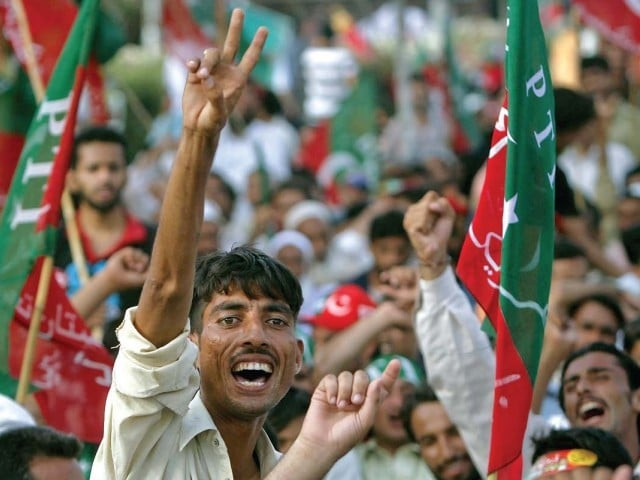Soon thereafter, I received an email with the following subject line:
“DECLINING POLITICAL PROSPECTS OF IMRAN KHAN??? ARE YOU RETARDED”
The message itself cut right to the chase.
“Listen to me, Imran Khan is our son and an asset to Pakistan. Just because he won’t bow down to you white [expletive] … does not mean that he won’t win the elections.”
After some witheringly profane (and wholly unprintable) material, my irate interlocutor concluded with some pithy analysis of the aforementioned article.
“Your article is [expletive], stay out of Pakistan’s affair and go write about something else.”
In reply, I told my cantankerous correspondent that I hoped the announcement of PTI’s new social media code of conduct would mean I wouldn’t get any more messages like this one.
Of course, I probably will. Codes of conduct are purely normative devices; they attempt to moderate the behaviour of individuals often not given to complying with nonbinding guidelines.
Individuals such as the notorious PTI trolls.
I often wonder about these trolls. After all, most PTI supporters are not abusive at all. I’ve had fascinating (and perfectly civil) online exchanges with party officials and common supporters alike. What I’ve noticed is that much of the vitriol tends to come from younger supporters. So is the trolling simply a matter of youthful euphoria and hero worship gone wild? Of disillusioned young people taking out their fury? Or of critics posing as PTIers to impugn the party’s clean reputation? I imagine it’s a combination of all three factors.
Still, let’s give credit where it’s due. With the release of the code of conduct, the PTI has taken action to address its supporters’ abusive behaviour. This cannot be said about most of Pakistan’s other political parties, which have more serious abuse problems—in the form of factions that commit physical violence (so far as I know, the PTI is not associated with violence.)
There is also the somewhat less brutal, yet nonetheless condemnable, violence meted out by actual politicians. One notorious offender is the PPP’s Waheeda Shah, who slapped an election worker on live television last year. Fahd Husain has written how Shah humiliated her victim:
“with a nonchalance that is borne of a life of privilege and power.”
Though certain PTI leaders have enjoyed both privilege and power, I don’t know of any who has harboured a sense of entitlement that sanctions slapping.
Even politicised civil society gets in on the act. We periodically hear about brawling lawyers and, most recently, fight-picking doctors. And I won’t even get into the comportment of some members of law enforcement.
I know of no Pakistani political party or civil society outfit given to violence that has come out with a formal policy outlawing (or even discouraging) unruly and aggressive behaviour. Certainly, reactive action is periodically taken against individual perpetrators. Shah, for example, was disqualified. Similarly, after young doctors roughed up officials at a Lahore hospital last week, YDA leaders expressed “regret” for the incident, and pledged an inquiry into the matter. Yet in neither case was there any mention of the need to establish formal mechanisms to reduce the possibility of such behaviour in the future.
Pakistan does have a track record of establishing policies to promote more responsible behaviour. One underappreciated example is the effort to institute a code of conduct for media organisations. Several small outfits voluntarily comply with the Society of Professional Journalists’ code (though admittedly, other attempts to encourage more responsible press content, such as Matihullah Jan’s short-lived show that exposed unethical media behaviour, have been less successful.)
My point here is that the PTI has taken an important step that should be, but has largely not been, taken by other political parties. I have certainly expressed doubts about the PTI’s electoral prospects, but never about its integrity or decency. The code of conduct announcement not only proves the presence of these qualities, but also gives credibility to the PTI’s vow to bring more accountability to Pakistan’s political culture. After all, an institution can only be taken seriously when it holds itself to the same standards that it expects others to uphold.
Will PTI trolls continue to prowl the social media sphere? Of course! Yet at least the party has not only recognised the problem, but also taken actual measures to tackle it. It’s an important lesson for the political class in Pakistan, but also in other countries—including my own.
Read more by Michael here or follow him on Twitter @MichaelKugelman



COMMENTS
Comments are moderated and generally will be posted if they are on-topic and not abusive.
For more information, please see our Comments FAQ